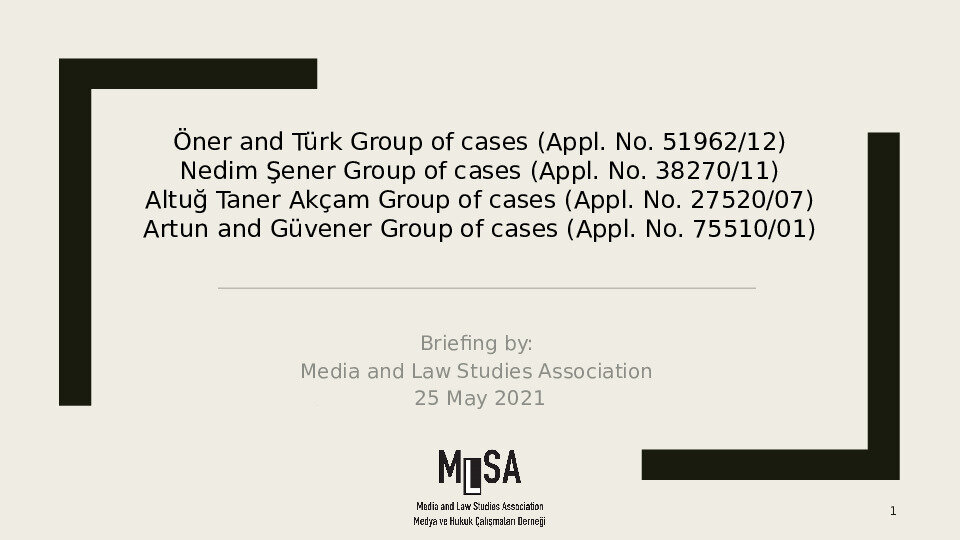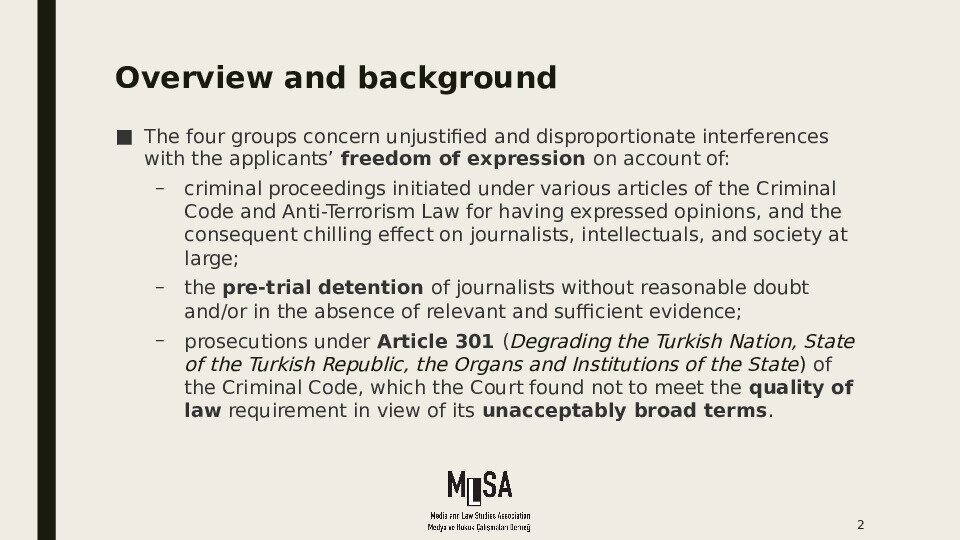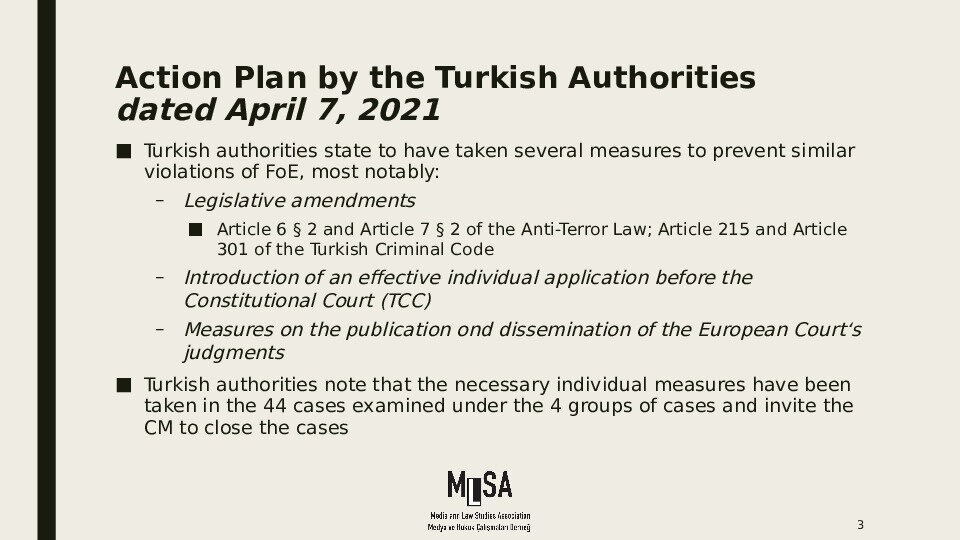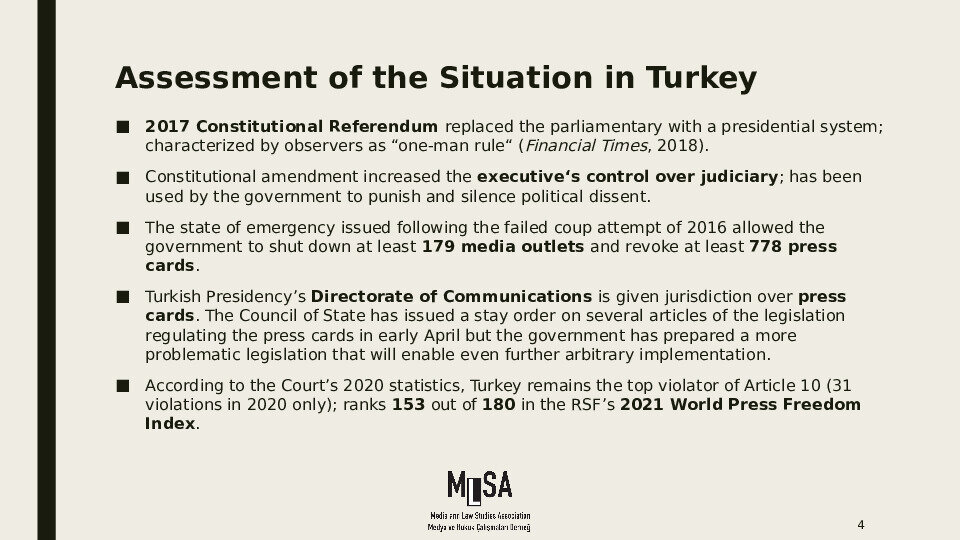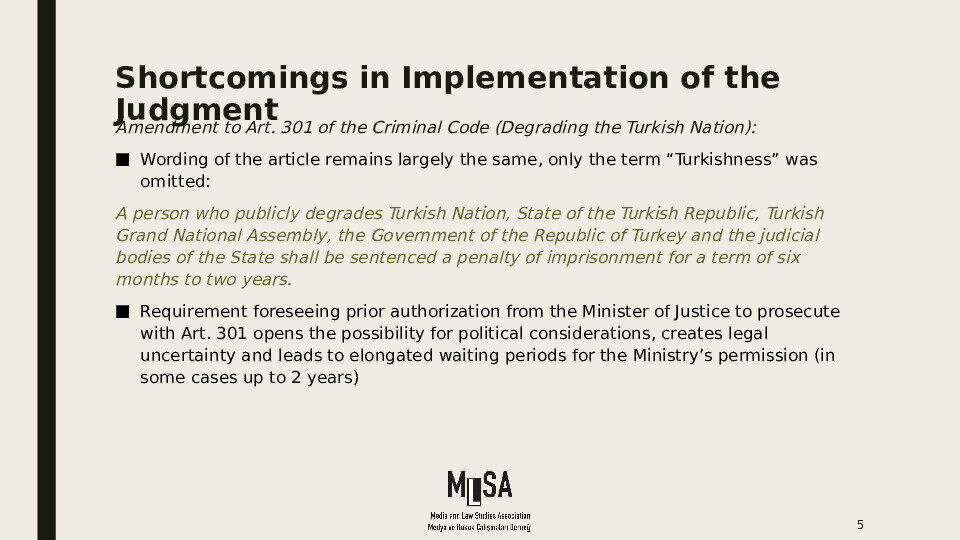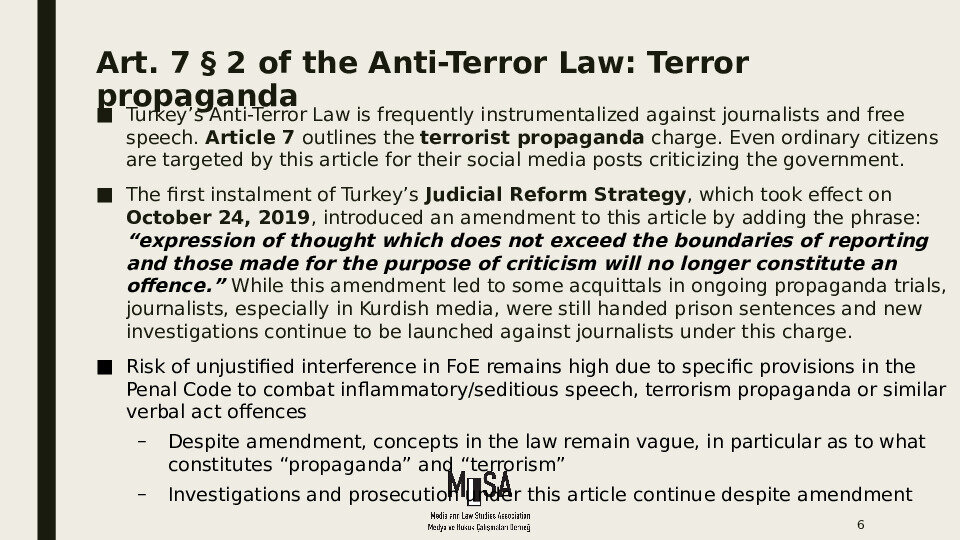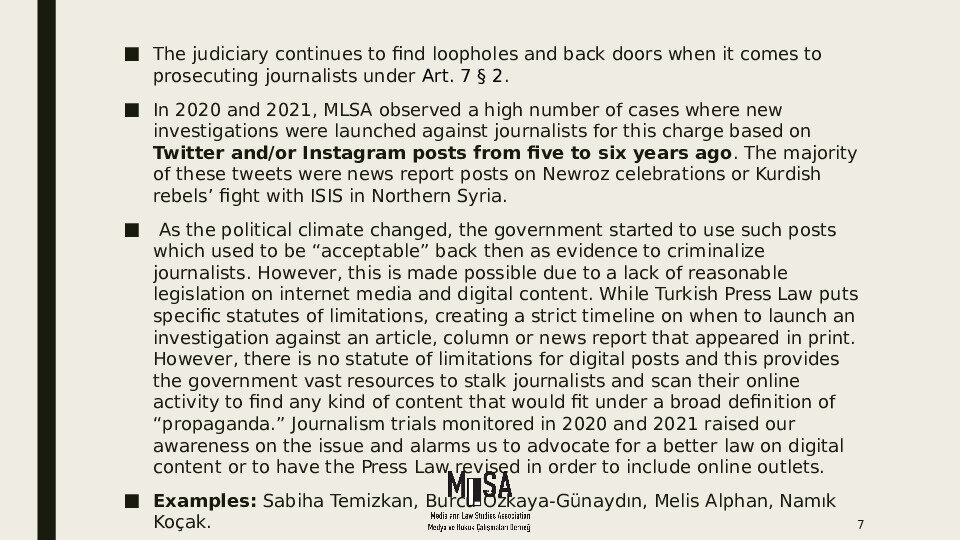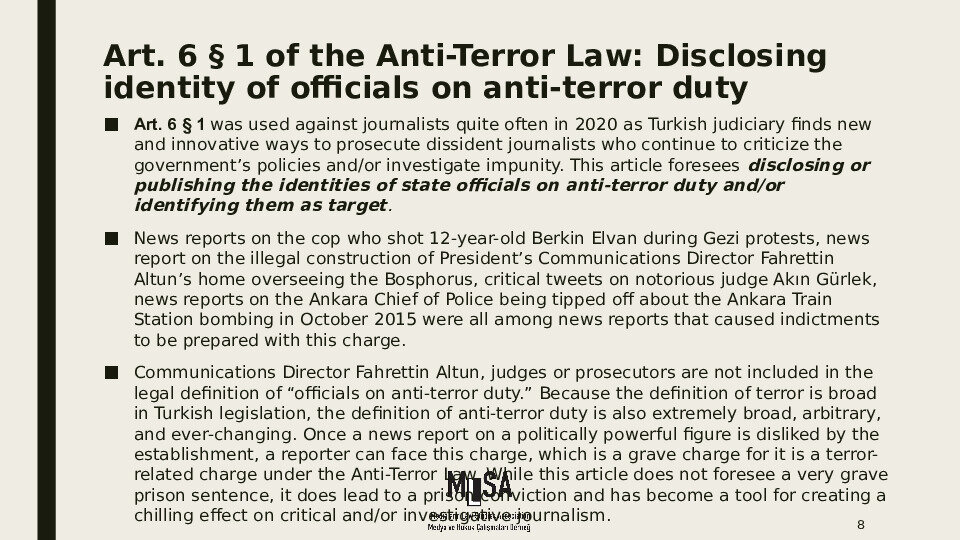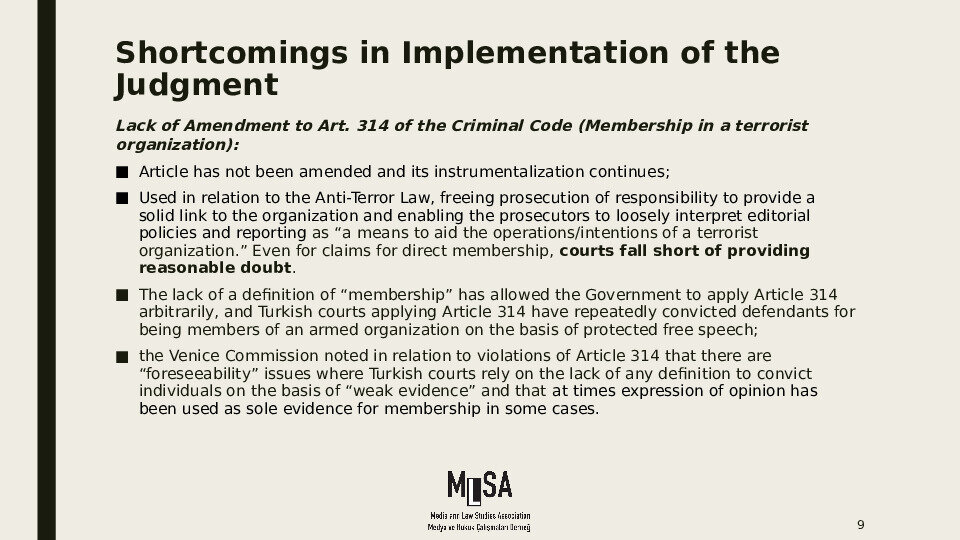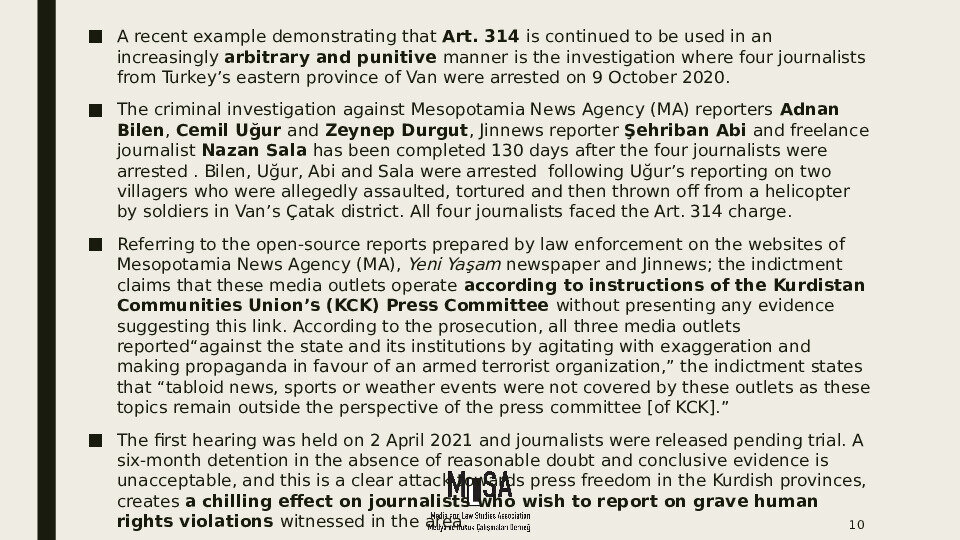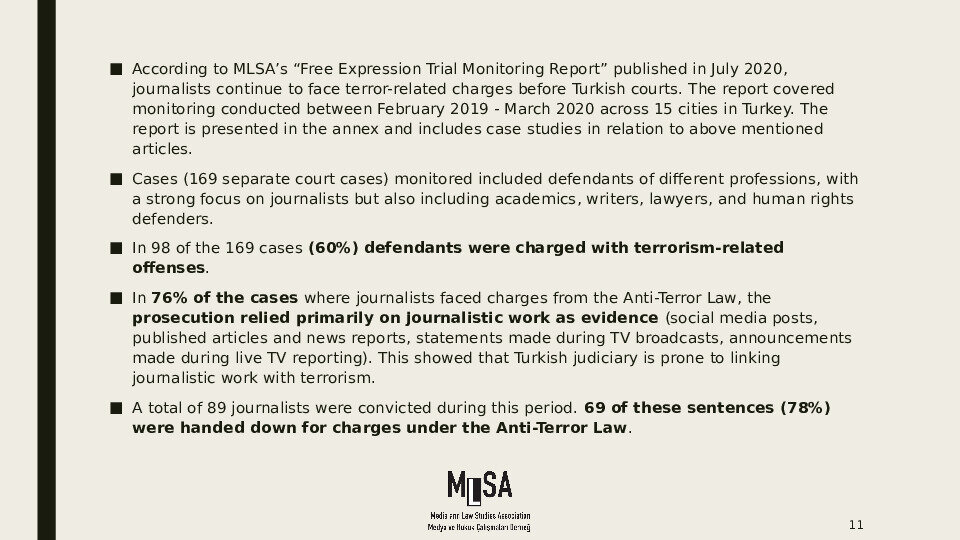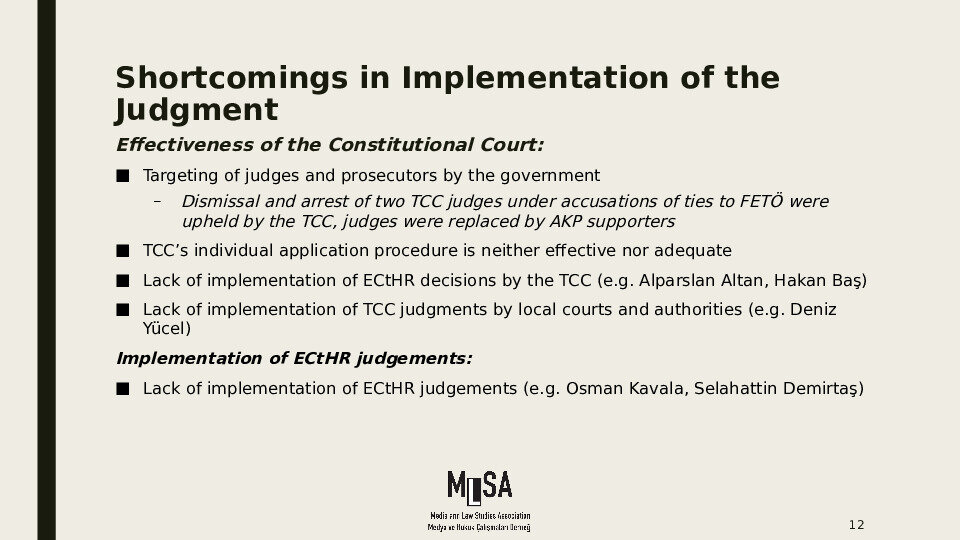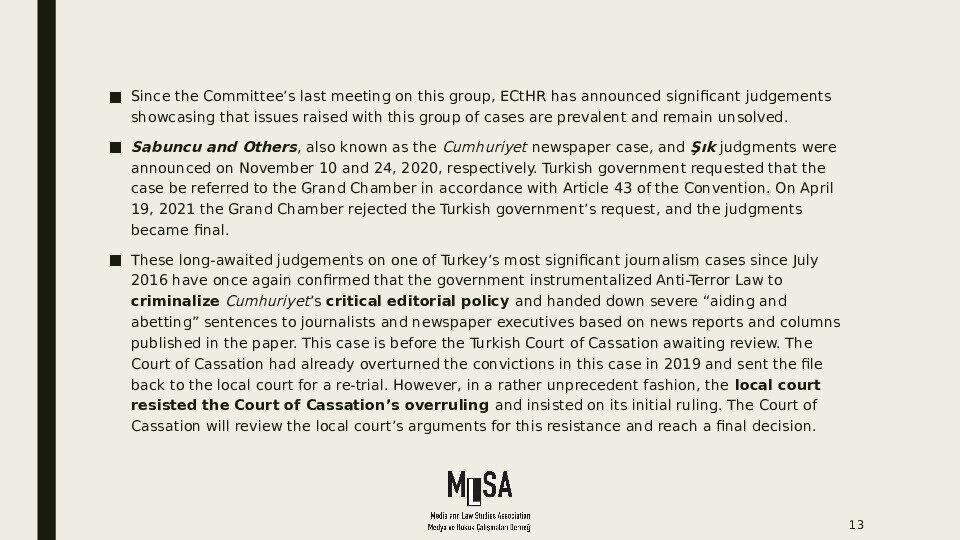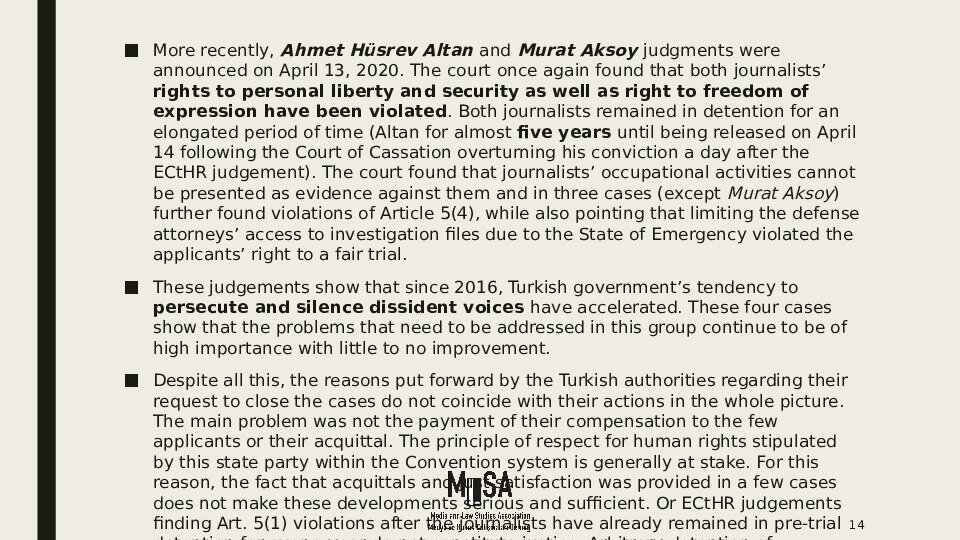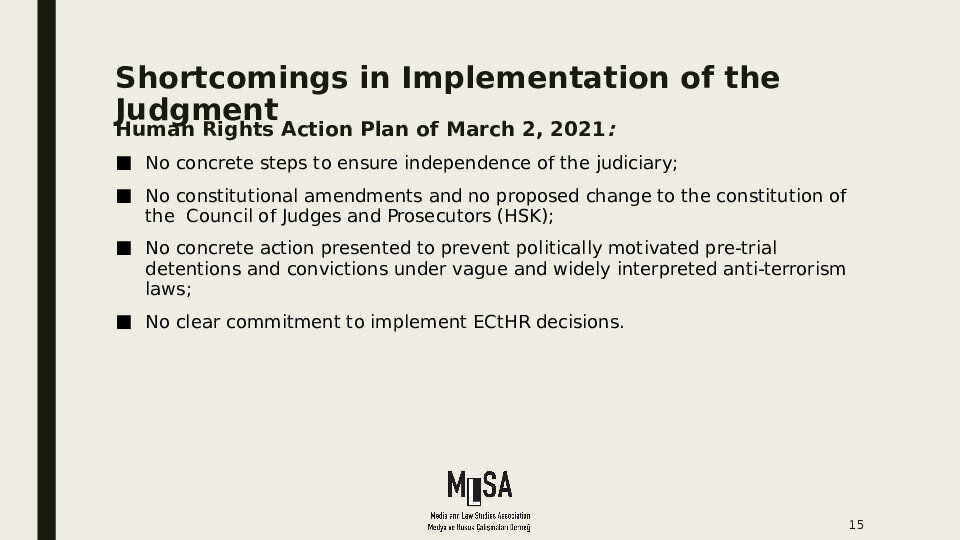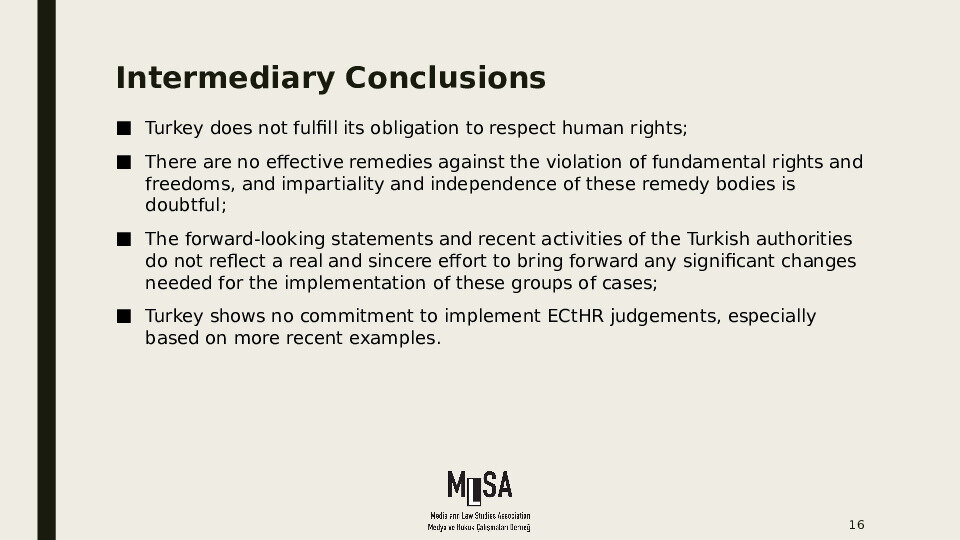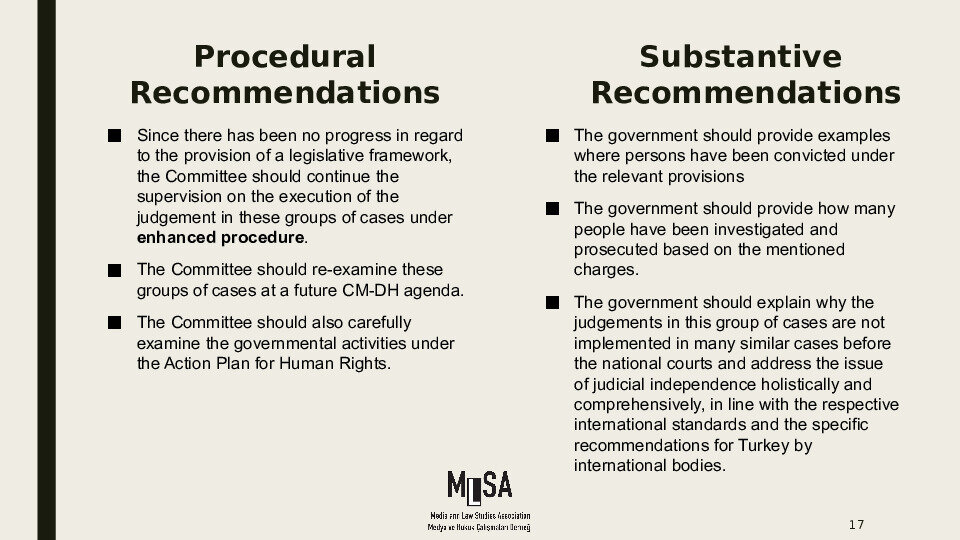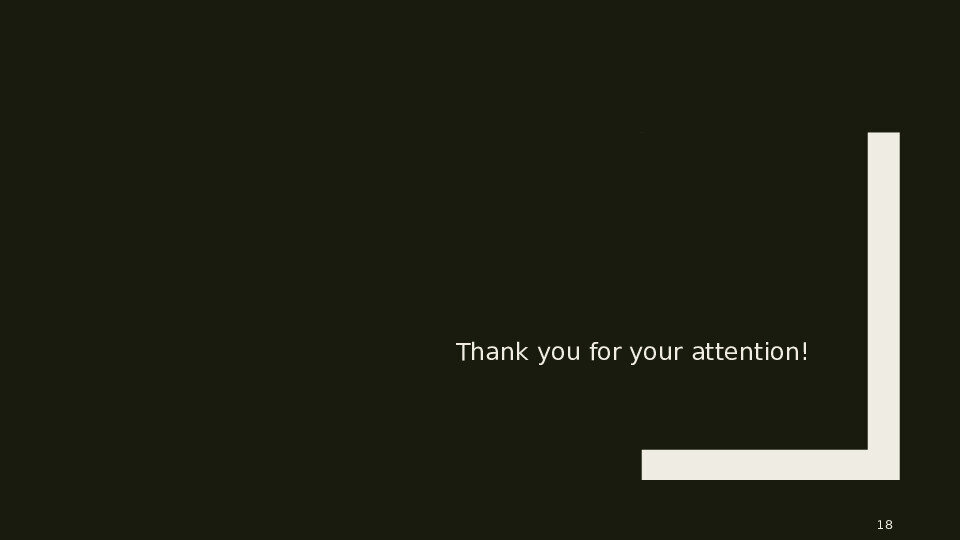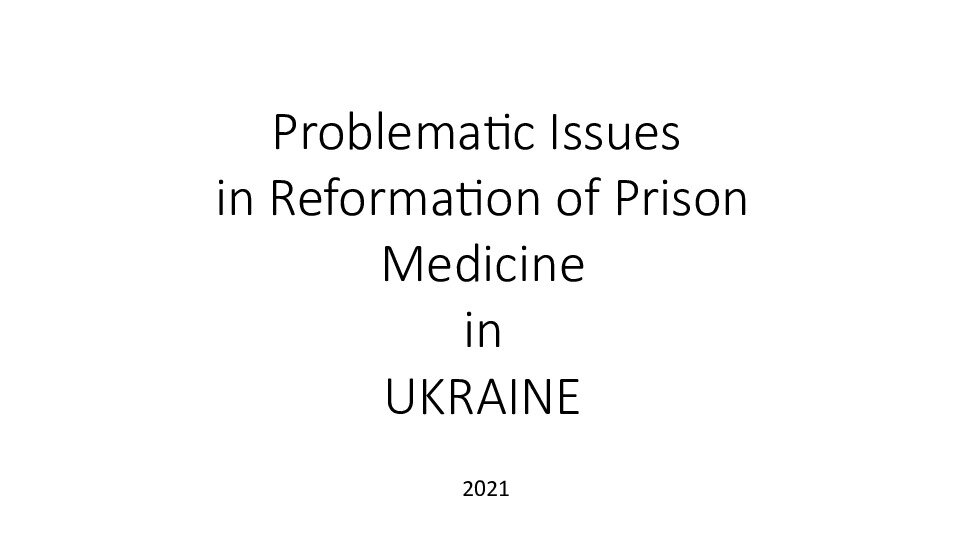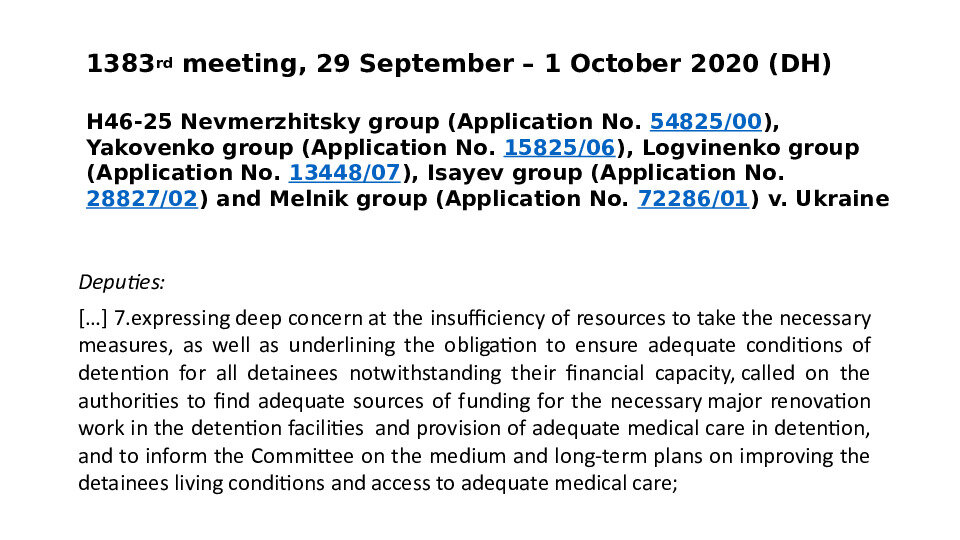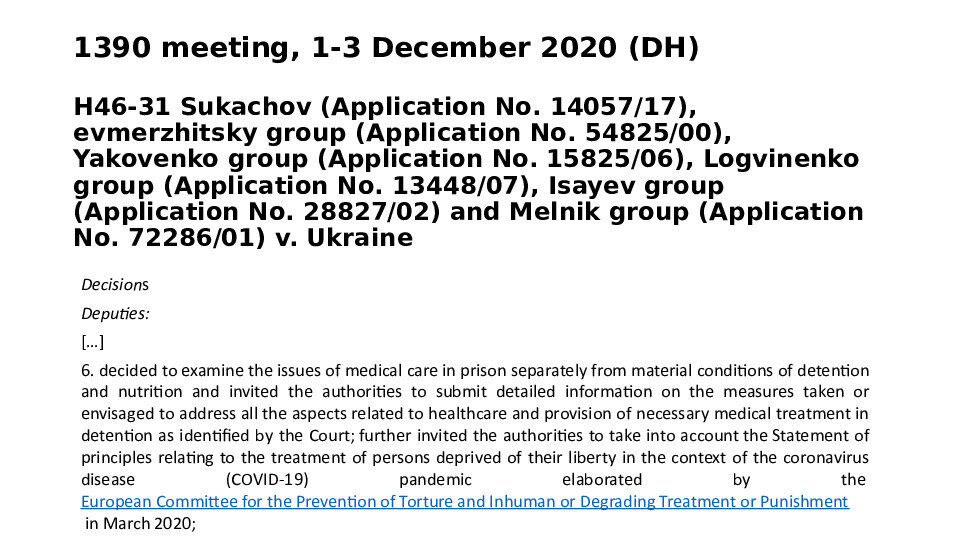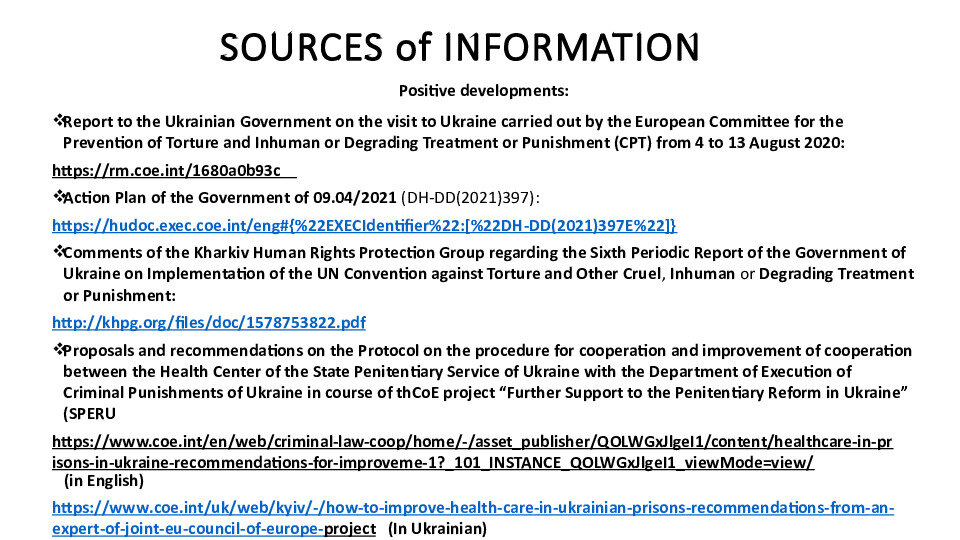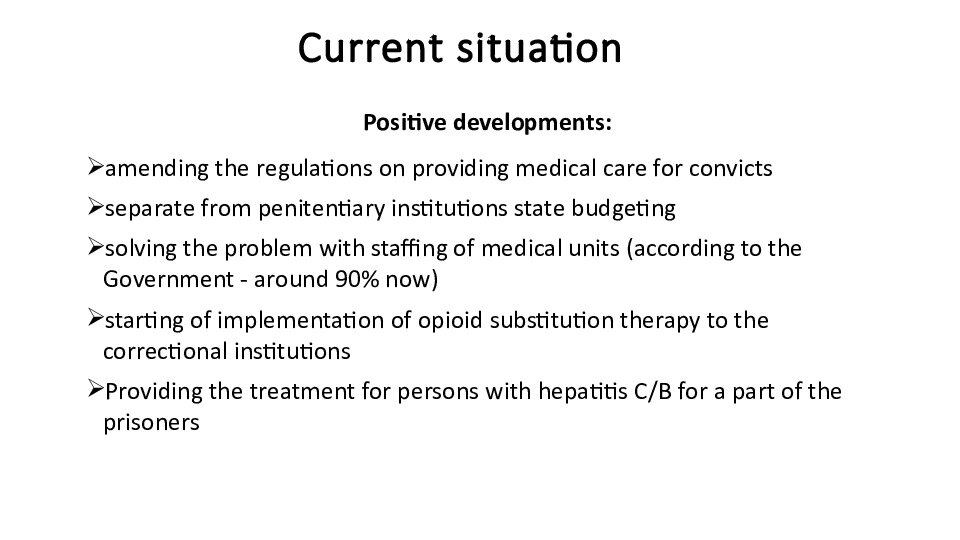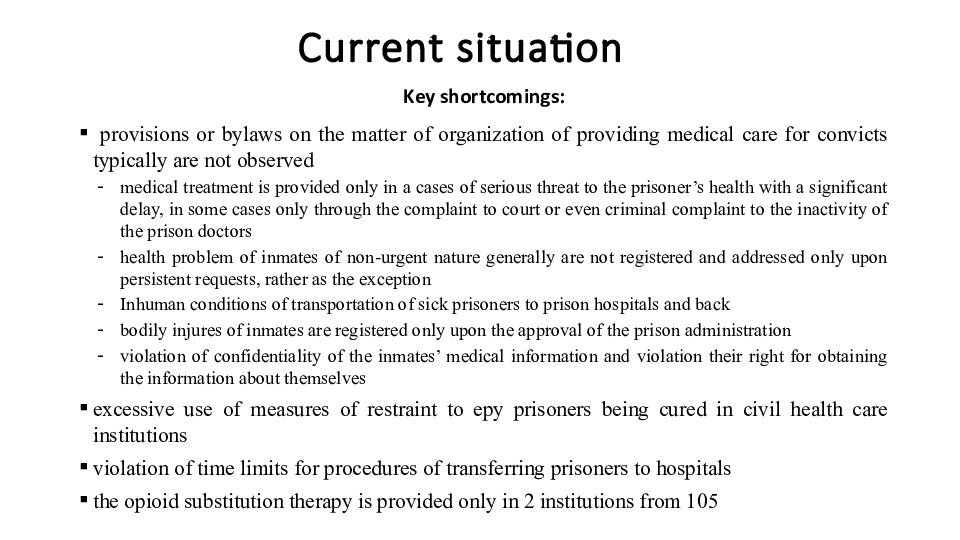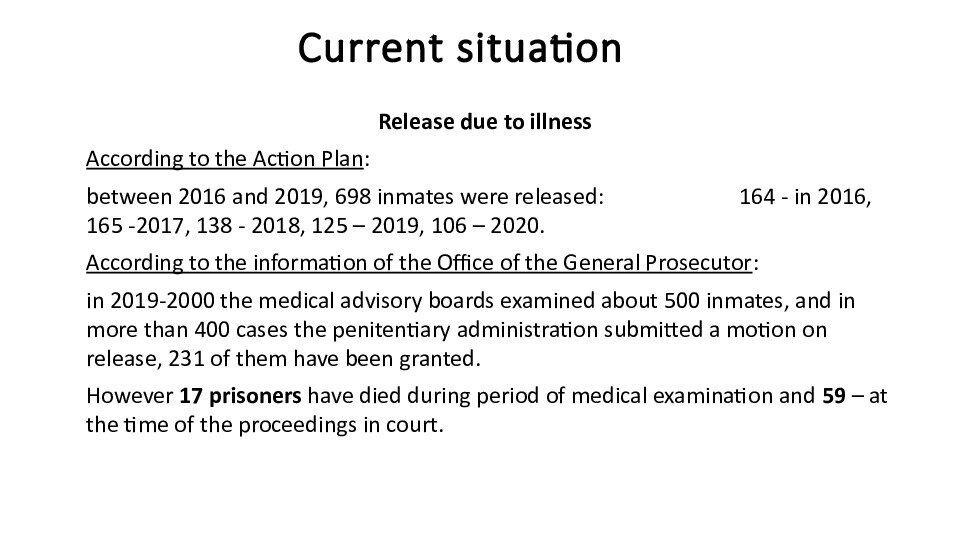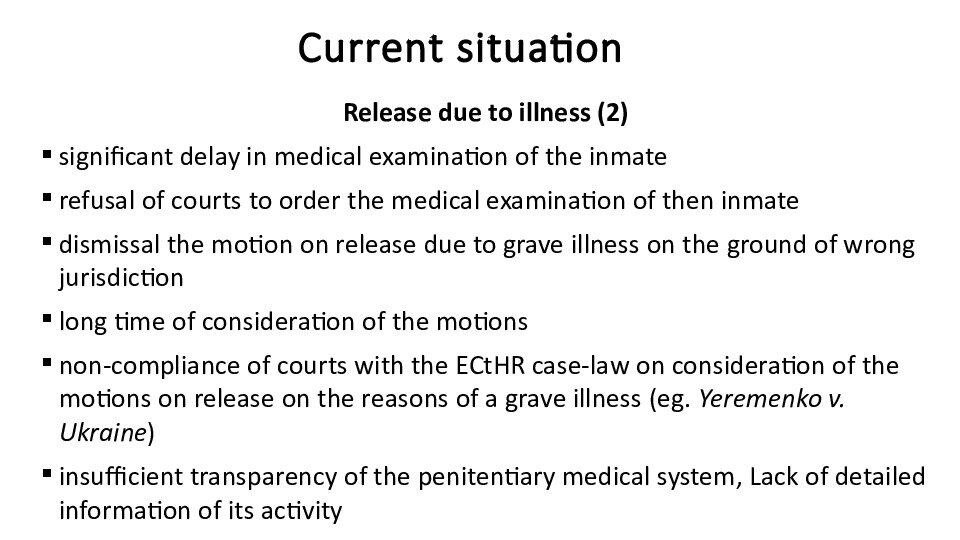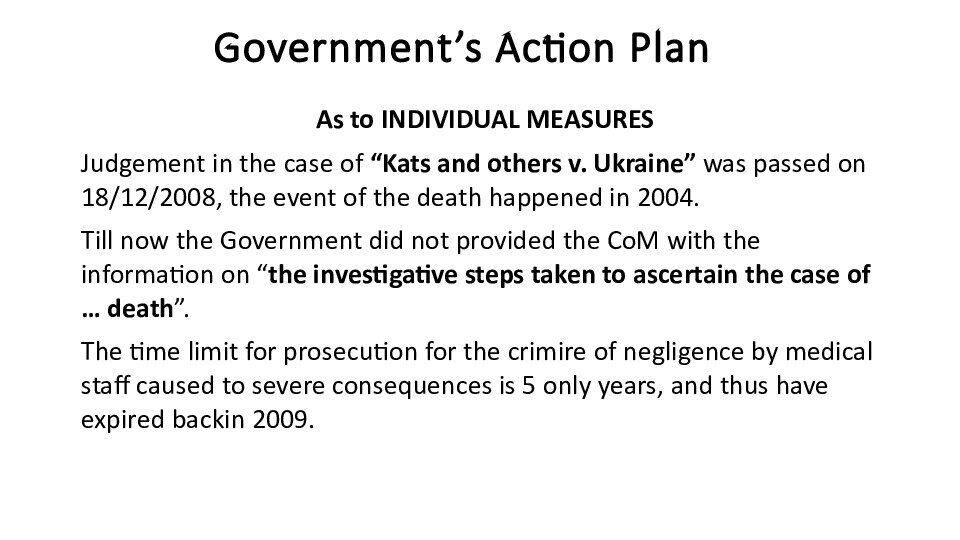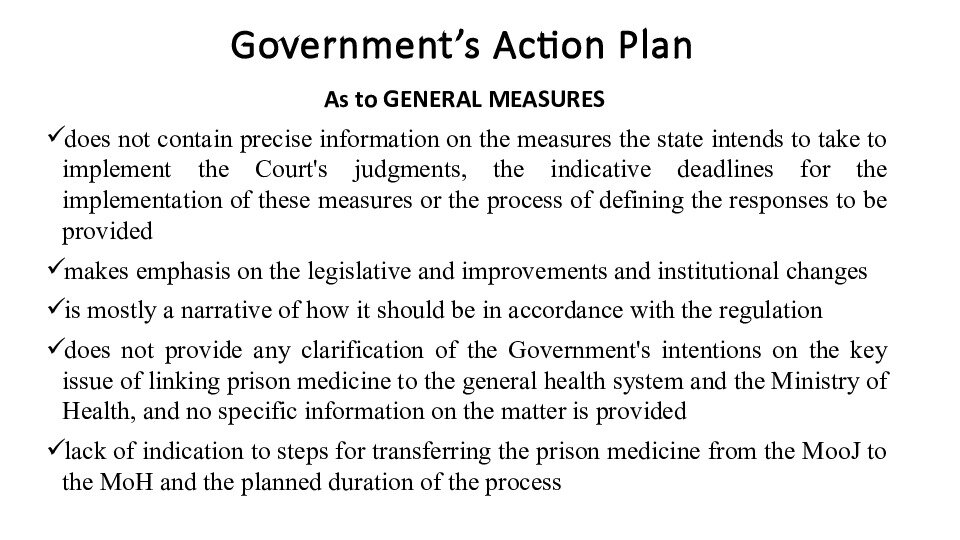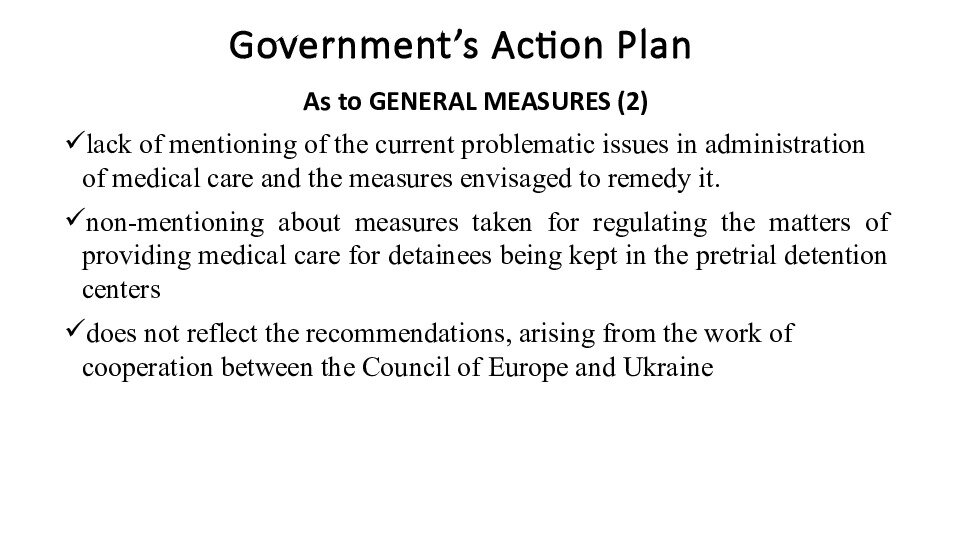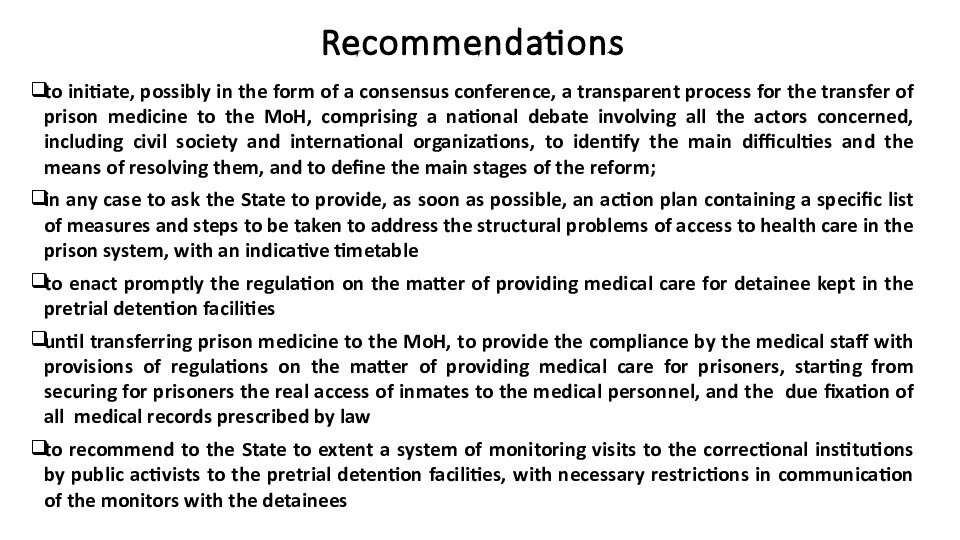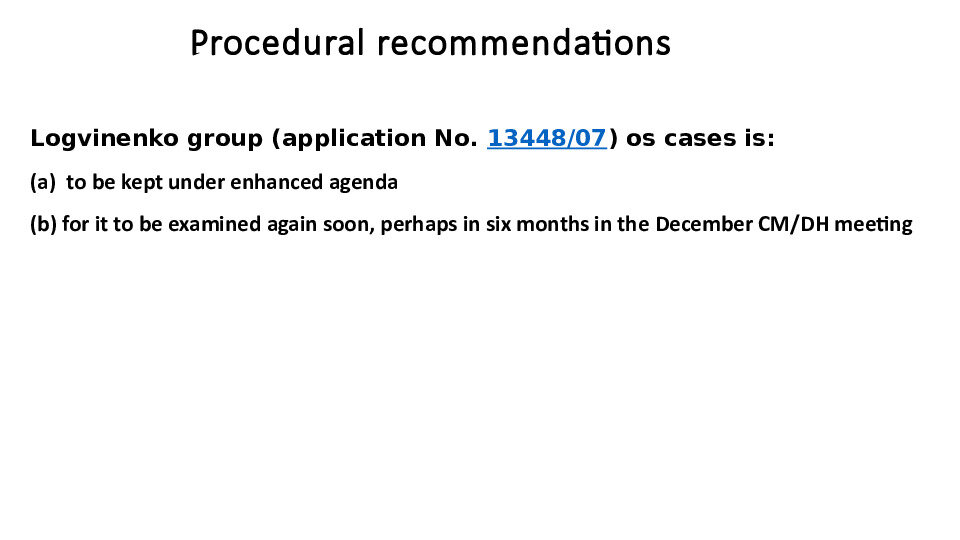EIN Civil Society Briefing on Turkey and Ukraine: Freedom of Expression & Violations Related Detention
/EIN held its latest civil society briefing on 25 May 2021 ahead of the Committee of Minister’s Human Rights Meeting on 7-9 June 2021. The event was held online due to the COVID-19 pandemic.
The second briefing focused on the following cases:
1. The Öner and Türk Group /Artun and Guvener Group / Nedim Şener Group /Altuğ Taner Akçam Group of cases, concerning unjustified interferences with freedom of expression, in particular through criminal proceedings, including for defamation, and the consequent chilling effect of these proceedings. The briefing on this case was presented by Aslı Ece Koçak, Editor and Project Coordinator from the Media and Law Studies Association.
2. The Logvinenko Group /Isayev Group /Kats and others group of cases, concerning various violations related to lack of adequate medical treatment in detention and lack of effective remedies, failure to comply with an interim measure, presented by Gennadiy Tokarev, Head of the Strategic Litigation Center of the Kharkiv Human Rights Protection Group.
The Öner and Türk Group of cases/ Artun and Guvener group/ Nedim Şener Group of cases/ Altuğ Taner Akçam Group of cases
Overview of the group of cases
The Öner and Türk group mainly concern unjustified and disproportionate interferences with the applicants’ freedom of expression on account of criminal proceedings initiated under various articles of the Criminal Code or Anti-Terrorism Law for having expressed opinions that did not incite hatred or violence, and the consequent chilling effect on society as a whole (Article 10).
The Nedim Şener group focuses on the pre-trial detention of journalists on serious charges, such as aiding and abetting a criminal organisation or attempting to overthrow the constitutional order, without relevant and sufficient reasons (violations of Articles 5 and 10).
The Altuğ Taner Akçam group deals with prosecutions under Article 301 of the Criminal Code (publicly denigrating the Turkish Nation or the organs and institutions of the State, including the judiciary and the army), which the Court found not to meet the “quality of law” requirement in view of its “unacceptably broad terms” (Article 10).
The Artun and Güvener group concerns unjustified interferences with the applicants’ right to freedom of expression on account of their criminal convictions for insulting public officials (the President, the Prime Minister and a tax inspector respectively) (Article 10).
Overview of the group of cases Briefing by the Media and Law Studies Association
The Media and Law Studies Association reminded the participants of the latest Action Plan by Turkish Authorities, and the measures the authorities indicated to have taken so far:
Legislative amendments: Article 6 § 2 and Article 7 § 2 of the Anti-Terror Law; Article 215 and Article 301 of the Turkish Criminal Code.
Introduction of an effective individual application before the Constitutional Court (TCC).
Publication and dissemination of the European Court‘s judgments.
Necessary individual measures in the 44 cases examined under the 4 groups of cases and invite the CM to close the cases.
The Media and Law Studies Association reminded the participants of the current situation in Turkey:
2017 Constitutional Referendum replaced the parliamentary system with a presidential system, characterized by observers as “one-man rule“ (Financial Times, 2018).
The constitutional amendment increased the executive‘s control over the judiciary and has been used by the government to punish and silence political dissent.
The state of emergency issued following the failed coup attempt of 2016 allowed the government to shut down at least 179 media outlets and revoke at least 778 press cards.
Turkish Presidency’s Directorate of Communications is given jurisdiction over press cards.
According to the Court’s 2020 statistics, Turkey remains the top violator of Article 10 (31 violations in 2020 only); ranks 153 out of 180 in the RSF’s 2021 World Press Freedom Index.
The judiciary continues to find loopholes and back doors when it comes to prosecuting journalists under Art. 7 § 2.
In 2020 and 2021, MLSA observed a high number of cases where new investigations were launched against journalists for this charge based on Twitter and/or Instagram posts from five to six years ago.
The Media and Law Studies Association Recommendations to the CM:
Since there has been no progress regarding the legislative framework, the Committee should continue the supervision on the execution of the judgements in these groups of cases under the enhanced procedure.
The Committee should re-examine these groups of cases at a future CM-DH agenda.
The Committee should also carefully examine the governmental activities under the Action Plan for Human Rights.
The government should provide examples where persons have been convicted under the relevant provisions
The government should provide information on how many people have been investigated and prosecuted based on the mentioned charges.
The government should explain why the judgements in this group of cases are not implemented in many similar cases before the national courts and address the issue of judicial independence holistically and comprehensively, in line with the respective international standards and the specific recommendations for Turkey by international bodies.
Please see the slides for full Briefing
Relevant Documents
Rule 9.2 Submissions
İfade Özgürlüğü Derneği (İFÖD - Freedom of Expression Association (03/05/2021)
Media and Law Studies Association (28/04/2021)
Media and Law Studies Association (25/02/2020)
Article 19 and Turkey Human Rights Litigation Support Project (TLSP) (27/01/2020)
İfade Özgürlüğü Derneği (İFÖD - Freedom of Expression Association) (22/01/2020)
CM Decisions
The Logvinenko Group /Isayev Group /Kats and others group of cases
Overview of Logvinenko Group, Isayev Group, and Kats and others group of cases
Logvinenko Group and Isayev Group, mainly concern inhuman and/or degrading treatment due to overcrowding, poor material conditions and inadequate nutrition in police establishments, pre-trial detention centres and prisons, as well as during transportation by road or rail between detention facilities or to courts; inadequacy of medical care in general and for infectious diseases, drug addiction and physical disability in particular; and lack of effective preventive and compensatory remedies in all these respects (violations of Articles 3 and 13).
Kats and others, concerns authorities’ failure to protect the right to life of the applicants’ relatives remanded in pre-trial detention due to inadequate medical care with regard to their HIV positive status (substantive violations of Article 2) and failure to conduct an effective investigation into the circumstances of the deaths, notably due to the lack of independence, exemplary diligence, public scrutiny and the lack of safeguard for the interests of the next-of-kin (procedural violations of Article 2). In the case of Kats and others, the Court found a violation of Article 5 on account of the applicants’ relative’s (daughter and mother, respectively) unlawful detention.
Overview of the Logvinenko, Isayev, Kats and others group case Briefing by Kharkiv Human Rights Protection Group
Kharkiv Human Rights Protection Group Lex reminded the participants of the latest findings from the last CM Decision
Regarding Logvinenko (CM/DH September 2020)
[…] 7.expressing deep concern at the insufficiency of resources to take the necessary measures, as well as underlining the obligation to ensure adequate conditions of detention for all detainees notwithstanding their financial capacity, called on the authorities to find adequate sources of funding for the necessary major renovation work in the detention facilities and provision of adequate medical care in detention, and to inform the Committee on the medium and long-term plans on improving the detainees living conditions and access to adequate medical care;
Regarding Isayev (CM/DH December 2020)
[…] 6. decided to examine the issues of medical care in prison separately from material conditions of detention and nutrition and invited the authorities to submit detailed information on the measures taken or envisaged to address all the aspects related to healthcare and provision of necessary medical treatment in detention as identified by the Court; further invited the authorities to take into account the Statement of principles relating to the treatment of persons deprived of their liberty in the context of the coronavirus disease (COVID-19) pandemic elaborated by the European Committee for the Prevention of Torture and Inhuman or Degrading Treatment or Punishment in March 2020;
Kharkiv Human Rights Protection Group reminded the participants of the current situation in Ukraine regarding medical care in prisons:
Positive developments:
Regulations on providing medical care for convicts were amended
State budgeting separate from penitentiary institutions
Problem with staffing of medical units solved (according to the Government - around 90% now)
Implementation of opioid substitution therapy to the correctional institutions has started
Treatment provided for a number of prisoners with hepatitis C/B
Key shortcomings:
Provisions or bylaws on the matter of organization of providing medical care for convicts typically are not observed
Medical treatment is provided only in cases of serious threat to the prisoner’s health with a significant delay, in some cases only following the complaint to the court or even following a criminal complaint for the inactivity of the prison doctors
Health problems of inmates of a non-urgent nature generally are not registered and are addressed only upon persistent requests
Inhuman conditions of transportation of sick prisoners to prison hospitals and back
Bodily injures of inmates are registered only upon the approval of the prison administration
Violation of confidentiality of the inmates’ medical information and violation of their right to obtain information about themselves
Excessive use of measures of restraint to prisoners being cured in civil health care institutions
Violation of time limits for procedures for transferring prisoners to hospitals
The opioid substitution therapy is provided only in 2 institutions from 105
Kharkiv Human Rights Protection Group’s Recommendations to the CM
To initiate, possibly in the form of a consensus conference, a transparent process for the transfer of prison medicine to the MoH, comprising a national debate involving all the actors concerned, including civil society and international organizations, in order to identify the main difficulties and the means of resolving them, and to define the main stages of the reform.
To ask the State to provide, as soon as possible, an action plan containing a specific list of measures and steps to be taken to address the structural problems of access to health care in the prison system, with an indicative timetable.
To promptly enact the regulation on the provision of medical care for detainees kept in the pretrial detention facilities.
Until transferring prison medicine to the MoH, to ensure compliance by the medical staff with provisions on medical care for prisoners, starting from securing real access to the medical personnel for prisoners, and the due fixation of all medical records prescribed by law.
To recommend to the Ukrainian authorities to extend the system of monitoring visits to correctional institutions by public activists to pretrial detention facilities, with necessary accommodations for the communication between monitors and detainees.
Finally, the Logvinenko group (application No. 13448/07) of cases should be:
(a) be kept under enhanced supervision
(b) examined again soon, perhaps in six months in the December CM/DH meeting.
Please see the slides for full Briefing
Relevant Documents
Rule 9.2 Submissions
Logvinenko group and Isayev group
Kats and others
CM Decisions
Logvinenko and Isayev
CM Interim Resolutions
Logvinenko and Isayev
CM Interim Resolutions (CM/ResDH(2018)472)

